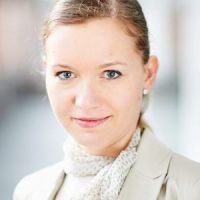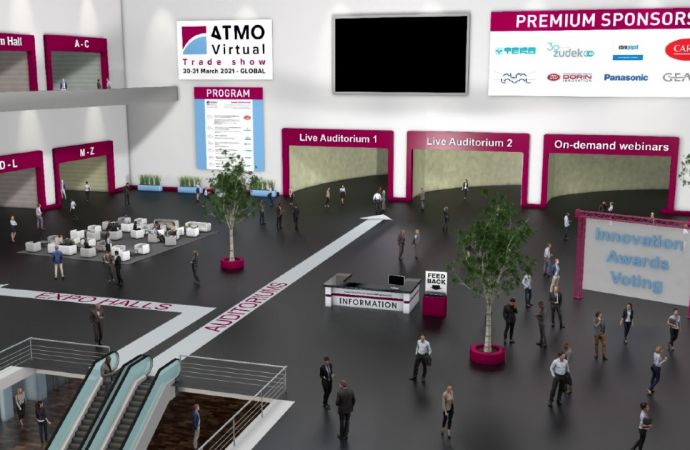With low demand power and high dependency on availability and accessibility of equipment in neighbouring countries, small-island developing states face unique challenges as they transition to low-GWP alternatives, such as hydrocarbons. A side-event to a recent Montreal Protocol meeting outlined not only barriers, but also opportunities and possibilities for the future.

During the 33rd Open-Ended Working Group (OEWG) meeting of the Parties to the Montreal Protocol a side-event was organised by the UNEP OzonAction to discuss the special challenges of small-island developing states (SIDS) in phasing out ozone depleting substances (ODS) as well as in their efforts to transition to climate-friendly alternatives. Out of 197 Parties to the Montreal Protocol, 39 are recognised by the United Nations to be part of the group of small islands developing countries.
Unique challenges of small-island states
While different specific challenges apply to each of the island states the speakers agreed that the unavailability and difficult accessibility of ozone- and climate-friendly alternatives is one of the most significant challenges. These islands are essentially technology takers highly dependent on the international trade and availability of the equipment in countries in their proximity. Lack of information and limited amount of human and financial resources to handle alternative technologies are additional major challenges, which need to be addressed.
At the same time, small islands are exposed to global environmental challenges and external economic shocks, which has been recognised in the outcome document of the United Nations Conference on Sustainable Development.
Several thoughts on the way forward were shared:
Opportunities for ‘leap-frogging’ to low-GWP alternatives
Mr Leslie Smith from the National Ozone Unit in Grenada highlighted some of the key reasons why SIDS need to be looking at ‘leap-frogging’ into long-term environmentally sound alternatives to ODS. “We need to avoid triple or multiple phase-outs of HFCs technologies”, he stressed. Moreover, ‘leap-frogging’ can lead to avoidance of approximately of 8.8 GT CO2eq by 2050.
In his presentation, he suggested the following approaches to ‘leap-frogging’:
“We must ensure that our ODS legislation include or is amended to include HFC control and in so doing we can impose restrictions on HFC import by simply amending the legislation that we have”, Mr Smith added.
Mauritius targets phase-out of HCFCs 5 years ahead of deadline
Mr Rajenda Kumar Foolmaun from the Ministry of Environment & Sustainable Development of Mauritius highlighted that the objective is to implement the HCFC phase-out programme 5 years ahead of the deadline period of 2030 and explained that this will be possible especially as a result of a good collaboration among all stakeholders in Mauritius. In addition, since there are only two entry points (airport and harbour) to the country, the control of imported goods is very effective. Mr Foolmaun mentioned that some of the key aspects that need to be implemented include not only awareness campaigns and training of technicians, but also introduction of incentives for the use of low-GWP alternatives, such as hydrocarbons.
“There is a very important need to strengthen multilateral agreement between developed countries and SIDS for empowerment and technology transfer of the latest technology, not second-hand equipment”, Mr Foolmaun stressed. In addition, the cooperation among SIDS needs to be reinforced so that they can share experience and have a common voice.
Unique challenges of small-island states
While different specific challenges apply to each of the island states the speakers agreed that the unavailability and difficult accessibility of ozone- and climate-friendly alternatives is one of the most significant challenges. These islands are essentially technology takers highly dependent on the international trade and availability of the equipment in countries in their proximity. Lack of information and limited amount of human and financial resources to handle alternative technologies are additional major challenges, which need to be addressed.
At the same time, small islands are exposed to global environmental challenges and external economic shocks, which has been recognised in the outcome document of the United Nations Conference on Sustainable Development.
Several thoughts on the way forward were shared:
- Public education and awareness raising
- Capacity building - training
- Financial incentives to encourage transition to low-GWP alternatives
- Building regulatory infrastructure – codes and standards
Opportunities for ‘leap-frogging’ to low-GWP alternatives
Mr Leslie Smith from the National Ozone Unit in Grenada highlighted some of the key reasons why SIDS need to be looking at ‘leap-frogging’ into long-term environmentally sound alternatives to ODS. “We need to avoid triple or multiple phase-outs of HFCs technologies”, he stressed. Moreover, ‘leap-frogging’ can lead to avoidance of approximately of 8.8 GT CO2eq by 2050.
In his presentation, he suggested the following approaches to ‘leap-frogging’:
- Avoid HFC technology selection for new equipment as much as possible
- Replace HFC equipment in service with low-GWP alternative where possible
- Improve training, recovery and recycling
- Introduce or amend to codes and standards
- Introduce disposal and destruction technologies
“We must ensure that our ODS legislation include or is amended to include HFC control and in so doing we can impose restrictions on HFC import by simply amending the legislation that we have”, Mr Smith added.
Mauritius targets phase-out of HCFCs 5 years ahead of deadline
Mr Rajenda Kumar Foolmaun from the Ministry of Environment & Sustainable Development of Mauritius highlighted that the objective is to implement the HCFC phase-out programme 5 years ahead of the deadline period of 2030 and explained that this will be possible especially as a result of a good collaboration among all stakeholders in Mauritius. In addition, since there are only two entry points (airport and harbour) to the country, the control of imported goods is very effective. Mr Foolmaun mentioned that some of the key aspects that need to be implemented include not only awareness campaigns and training of technicians, but also introduction of incentives for the use of low-GWP alternatives, such as hydrocarbons.
“There is a very important need to strengthen multilateral agreement between developed countries and SIDS for empowerment and technology transfer of the latest technology, not second-hand equipment”, Mr Foolmaun stressed. In addition, the cooperation among SIDS needs to be reinforced so that they can share experience and have a common voice.
MORE INFORMATION
Related stories



